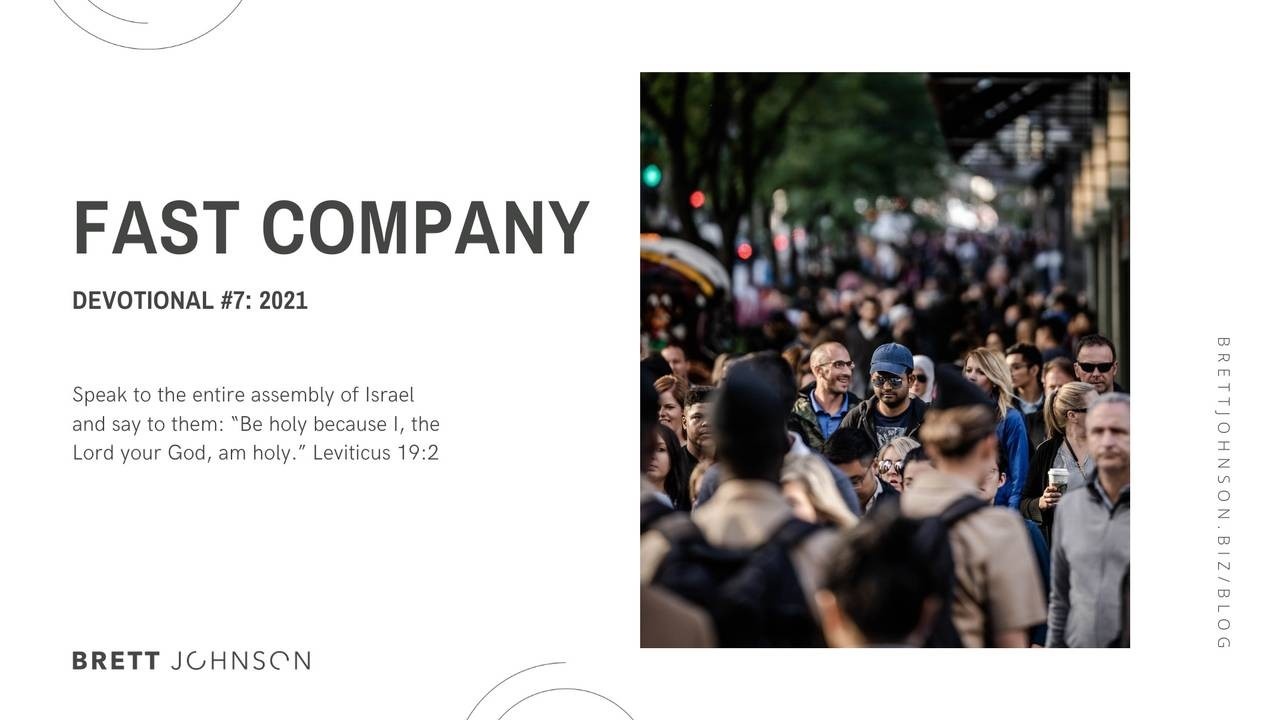Fast company
Feb 17, 2021
Speak to the entire assembly of Israel and say to them: “Be holy because I, the Lord your God, am holy.” Leviticus 19:2
God did an amazing job in completely changing the mindset of a whole nation. Here were people who had lived immersed in another culture. The Egyptian boys had the cool haircuts, they drove the fast chariots and had a nice tan. The Egyptian girls were allowed to have tattoos and body piercing. So how do you take a whole nation—men, women and children—and cause them to have different minds and different hearts from the culture they have lived in for 400 years? I believe there were some keys:
- Persecution: I doubt that they would have been ready to leave Egypt had they not had a really rough time.
- Leadership: they needed someone to say, “God has said…”
- Miracles: the probability of the Israelites believing God without an awesome demonstration of His power was low.
- An impossible dream: the dream of the Promised Land was huge. It stretched them; it made them stay dependent on God.
- Heart-changing commands: while many of the commandments appear to be geared towards behavior, they are essentially directed towards the heart. “Do not seek revenge or bear a grudge against one of your people, but love your neighbor as yourself.”
- Frameworks for worship and societal functioning: the laws were given to cover not only worship, but all aspects of life such as healthcare, the judicial system, agriculture (Lev. 19:23-25), cooking, clothing. They extended to inter-generational relations. “Rise in the presence of the aged, show respect for the elderly and revere your God.” They were a new worldview.
- Specific instructions about the mission: going into the Promised Land came with clear instructions.
- Short-term and long-term goals: there were always immediate things to do, and there were the goals that kept perspective because they were longer term in nature.
In all of these things, the interlinking of (1) the freeing of the thinking from old patterns and (2) the creation of a new heart of worship and (3) the building of a new type of society was amazing. Our problem is that we assume the old frameworks we have grown up with are godly. We assume that the business practices and operating assumptions we embrace are aligned with truth when, in fact, they are drawn from Smith and Sloan and Ford and Drucker and Fast Company. Not that there is no truth there, but the line they follow is often the bottom line, not the plumb line of God’s character and commands and ways.
Reflections
- What methods has God used to renew your mental models of business and ministry?
- What connection do you see between your thinking, your worship and your involvement in societal transformation?

